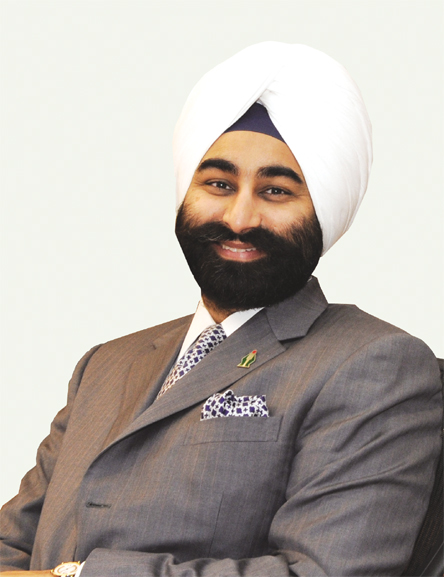
 Shivinder Mohan Singh, MD,
Shivinder Mohan Singh, MD,
Fortis Healthcare, believes healthcare needs to be standardised, accessible in a cost-effective manner to the masses. In an email interaction with Sharmila Das, ENN
What is your take on Universal Healthcare (UHC)? Do you feel after Thailand and Brazil, India would be able to take significant steps towards UHC? If no, where do you see the challenges?
Universal Health Care (UHC) is an objective that has continued to challenge India. The Millennium Developmental Goals had set an objective of Health for All by the year 2000; even 12 years post that time line, the horizon continues to be a receding one. There are multiple reasons for this slippage, the primary one being the lack of a cogent strategy and a delivery plan to match, at the country level. The journey towards UHC will be a long one, requiring several structural and systemic changes.
Yes, India can take progressive steps towards realising its vision of UHC. This will require a significant shift in the priority that has hitherto been accorded to this sector and, hence, will need a long term sustained focus. Experience from many of the countries that have implemented UHC suggests that there are three stages in the development of a countrys ealthcare system in its journey towards UHC. The first stage is referred to as Nascent, characterised by a weak delivery structure, inequitable access, variable quality, inefficient operations and high out of pocket expenditures. The second stage is the Maturing stage, characterised by improving access, creating the right delivery structures, improved efficiency, a shift towards quality, and a significant increase in demand. The final stage is referred to as Maturity, characterised by well-established delivery structures, focusing on efficiency and quality, and managing the shift towards rising aspirations in a society which has got used to UHC; such a system continually re-calibrates itself to meet emergent challenges and expectations. India is in the Nascent stage and it could well take between 10-15 years
of sustained effort to arrive at UHC. Major challenges that will need to be tackled are:
Financing healthcare delivery: will lead to approx. trebling of public share of expenditure as Governments role shifts from provider to a significant payor
Enhancement of infrastructure: huge capex will need to be deployed to ncrease the number of hospital beds by approx. 3.5 times; investments will be required to set up educational institutions to produce medical talent; PPP formats will need to be developed and deployed to facilitate delivery of care
Regulation: a strong and unbiased regulatory framework will be required to enforce quality and governance

What are your expectations from the 12th Five Year plan for Indian healthcare? How do you feel the increased spending on Indian healthcare should be disseminated?
I feel the following need to be done:
Faster progress towards Millennium Development Goals.
Grant of infrastructure status to healthcare
A favourable policy environment to encourage private players to engage in PPPs in the healthcare sector.
Investments in new medical colleges; and opening the field to established and serious private players
Setting up of hospitals for vulnerable sections of society and rural areas
Creation of policies for compulsory health insurance and/ or innovative solutions with similar intent
Favourable policy on clinical talent retention in India as well as ease in the re-entry into India of international medical degree holders. (Encourage reverse brain-drain or brain gain for India)
Positive attitude to look at public and private players as trying to achieve a common goal, rather than being at daggers drawn
How do you feel healthcare giant like Fortis can make a difference in collaborating UHC, managed care model in India?
We can offer our expertise and experience in managing hospitals in a ustainable manner. For example, we can offer to have deep understanding of efficient operations, clinical quality; control costs (to consumer) inspite of inflation. To have ability to standardise healthcare (McDonalds approach). We can help work with the Government on PPP mode to improve the care delivery framework cost-effectively.
What is your opinion of the medical training that is available in the country?
There is a high variability in the quality of talent emerging from training schools these days. So the healthcare sector has to expend additional resources on re-training and skilling prior to deploying resources for patient care. We eed to create transparency and upgrade our health education systems, bringing them to international levels.

At times the government hospitals are unable to retain talented healthcare specialists. What steps should be taken to ensure that the government owned healthcare centres, especially in rural areas, are fully manned?
The government can consider PPP for such healthcare infrastructure. A key factor will be to incentivise doctors through monetary and non-monetary means to devote time in rural centres. Also government should set up appropriate training infrastructure to utilise locally available talent.
What plans do you have for Fortis in near future?
We plan to increase our presence in other parts of our country so that more and more people can have access to affordable and high quality healthcare. For that matter, we plan to partner with the State Governments progressively to further the PPP agenda in a sustainable manner. We wish to setup protocols and clinical pathways to standardise delivery of healthcare in line with best practices. We encourage our hospitals to train incoming fresh talent so that we can offer to the citizens of India a first-class private healthcare network spanning secondary and tertiary care on a quality-based value proposition.
Be a part of Elets Collaborative Initiatives. Join Us for Upcoming Events and explore business opportunities. Like us on Facebook , connect with us on LinkedIn and follow us on Twitter , Instagram.










